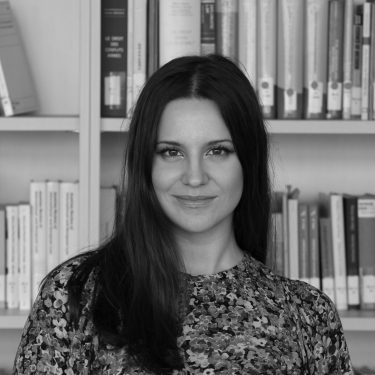Inspiration must be very desirable for artists. The relieving advent of inspiration following the anguishing search thereof has been praised in valuable artworks of various forms (see for example Homer’s famous invocations to his Muse/the Muses, or Ferrier’s ‘Awakening of the Poet’). I don’t think that academics are that different from artists, at least in this regard. I am rather certain that they also desire inspiration just as much as (other) artists and that they are simply not so willing or brave to admit it. And this is not only because I find working uninspired almost unbearable, but mostly because I think that academic writing entails an artistic part. As an important parameter of arts, inspiration cannot but be an important parameter of the artistic part of academic writing, and, as such, it cannot but be a matter of academic discussions.
Of course, what inspires a person is highly personal. For me, the support I receive from loved ones is always inspiring in a sense; although academic debates are not the overarching theme of my mum’s and my virtual morning coffee, the sense of support certainly is a spinning wheel for the rest of the day. And this has been the case since my childhood years, during which I have received inspiring support from a number of people, including my godfather, Dimitris Papathanasis, a proud lawyer, whom I remember referring to me as his colleague since I was 9 years old the latest. Losing him last summer made me revisit the significance of (his) support, support as a source of inspiration, and of the significance of inspiration itself.
Between discussions on the matter, my boyfriend told me how he had drawn inspiration from Mikael Åkerfeldt’s interview in the Amoeba ‘What’s in my bag?’ series, in which Åkerfeldt himself explained how certain artists’ work had influenced and inspired his music. So, I thought, if other artists’ inspiration is inspiring for artists, then perhaps other academics’ inspiration might be inspiring for academics as well. And there it was: the idea for the symposium ‘The Person Behind the Academic’ arose.
The symposium was launched on the 21st of October, and an interview with Mando Rachovitsa, who was very supportive of the idea, kicked off the symposium! The latter seeks to bring discussions on various academics’ personality and sources of inspiration to the forefront. The idea is that if other academics speak about their influences, they might also influence others, who may be in search of such inspiration at the time. Similarly, understanding one’s influences may also lead to a better understanding of their work, whereas a glimpse of the person behind the academic may also demystify the road to influential work for younger academics. To serve these purposes, the symposium will host a series of interviews, which will continue being published on a regular basis (most likely every second Friday). Are you ready to meet the person behind the academic? I hope that you will enjoy the symposium as much as I am enjoying working on it and that it will help you feel inspired too.
But this was not only the symposium that took place on our blog in October. In collaboration with India Justice Project and the European Center for Constitutional and Human Rights, the Völkerrechtsblog hosted the symposium “Adivasi Struggles in Chhattisgarh”. Through a series of blogposts, this symposium highlighted the specific institutional and state-corporate violence experienced by the Adivasis inhabiting the state of Chhattisgarh, as a demonstrative example of the shrinking space for minorities across the country.
Meanwhile, the past months’ developments in the context of Russia’s invasion of Ukraine have been addressed in three of October’s posts on the blog. Precisely, Katharina Parameswaran highlighted Russia’s most recent violations of the international law of occupation in Ukraine following September’s sham referenda, and Juliette McIntyre outlined the procedural implications for the ICJ of the Article 63 Interventions in Ukraine v. Russia. On a similar note, Alexander Melzer identified the permissible content and the authorship of the undisclosed EU’s memorial in the case of Ukraine v. Russia before the ICJ.
Climate change and the growing climate crisis have also caught the attention of the blog’s authors during October. In their recent post, Chiara Scissa, Francesca Biondi Dal Monte, Matthew Scott, Margit Ammer and Monika Mayrhofer examined the legal and judicial responses to disaster displacement in Italy, Austria and Sweden. Furthermore, Valentin Büchi explored the impact of the Torres Strait Islanders’ decision of the UN Human Rights Committee on the right to life, and just yesterday Abhijeet Shrivastava reflected on the responsibility to protect against the background of ecocide.
Paolo Passaglia explored the right to access the Internet and Petra Sußner drew attention to rewriting as a method of redrafting decisions from feminist perspectives and its significance for judgements relating to pushbacks at the EU borders. Daniel Rietiker and Sofie Steller reviewed Georgios A. Serghides’ book, highlighting the role of the principle of effectiveness in the interpretation and application of the European Court of Human Rights. Finally, the 21st Völkerrechtspodcast titled ‘Terrorismus: Reine Definitionssache?’ was aired in the beginning of October, completing a rather busy month at the blog.
The end of October also marked the end of Katharina Koch’s internship. In last month’s editorial, our first intern outlined her tasks and the projects that she was working on and shared her excitement for this new beginning. During her internship, Katharina supported our blog substantively and brought with her innovative ideas. We are, thus, very grateful for what Katharina has done for the blog and we wish her all the best with her next endeavours.
Let’s see what November will bring now. Have a lovely start to the new month everyone!

